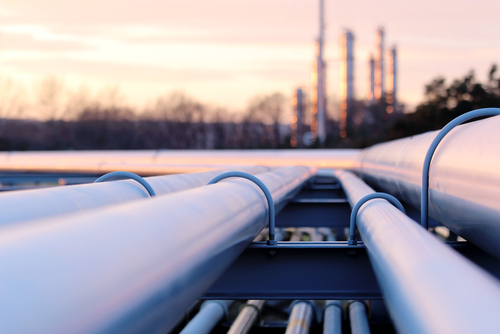
The EU Commission Proposes the Shared Purchase of Gas to Be Ready for the Imminent Winter
In view of the significant increases in the price of gas, due to the well-known geo-political vicissitudes of the last few months, the European Commission has proposed entrusting a service provider, accepted by all the countries involved, with the management of a European Union platform which would have the purpose of recording the gas needs of each Union nation and evaluating the proposals on the market capable of satisfying the request at the best possible price.
According to German Economy and Environment Minister Robert Habeck, joint gas purchases by all EU countries are the best way to keep gas prices low. Robert Habeck says he is aware of the great market power of the European Union and this can only be a strength in the search for better prices for energy supplies. With the development of a common platform for the purchase and management of energy resources, it will be possible to prevent speculative fluctuations on international stock exchanges so as to avoid increases in market sensitivity in phases of tensions such as that linked to the Russian-Ukrainian conflict.
In this way, argues the president of the European Commission Ursula Von Der Leyen as well, Europe would aim to meet at least 15% of the gas storage targets by each country involved, precisely because, according to the same, after a careful analysis, it was highlighted that this last fraction of storage was revealed to be more expensive. Von Der Lyen reiterated that she is certain that Europe will have no problems getting through next winter, based on the certainty of a filling rate of European gas storage facilities already at 92%.
In recent months, various actions have been taken by the European community to make up for the lack of gas supplies from Russia, which has now fallen to 9%, starting with a significant reduction in energy consumption up to 15% of the total gas demand between August and September, plus the diversification of sources of needed energy. The president of the European Commission also praised the precautionary measures taken by Spain and Portugal consisting in the introduction of a cap on the price of gas used in the production of electricity at national level, so as to drastically and effectively reduce the price of electric energy. The next steps include a study of these countermeasures in order, if necessary, to adopt them also at the continental level.
On the joint platform under the EU study, companies would be facilitated in the purchase of gas by forming a general consortium, respecting the Union competition rules and thus allowing even small companies, hardest hit by price increases, to access supplies of gas at extremely affordable prices. To ensure the success of the operation, of course, there will be careful checks to ensure transparency in purchases and security in supply.
The intention of the European Commission, developing a common gas management platform, is to create an internal network in collaboration with the member states that will benefit from it, capable of guaranteeing a supply at prices lower than those envisaged by the upcoming energy crisis due to the war in progress by Russia and Ukraine, and the safeguarding of the infrastructures defined as critical, in the energy sector, throughout the European territory, so as to constantly monitor the adequacy and efficiency of the structures in charge of storage and gas supply. This last “precaution” proved to be fundamental especially after the controversial vicissitudes of the sabotage of the Nord Stream gas pipeline in the Baltic Sea. With this common control platform, each country will contribute to maintaining the efficiency of all the plants in the area by defending their integrity and proper functioning.



 Subscribe
Subscribe